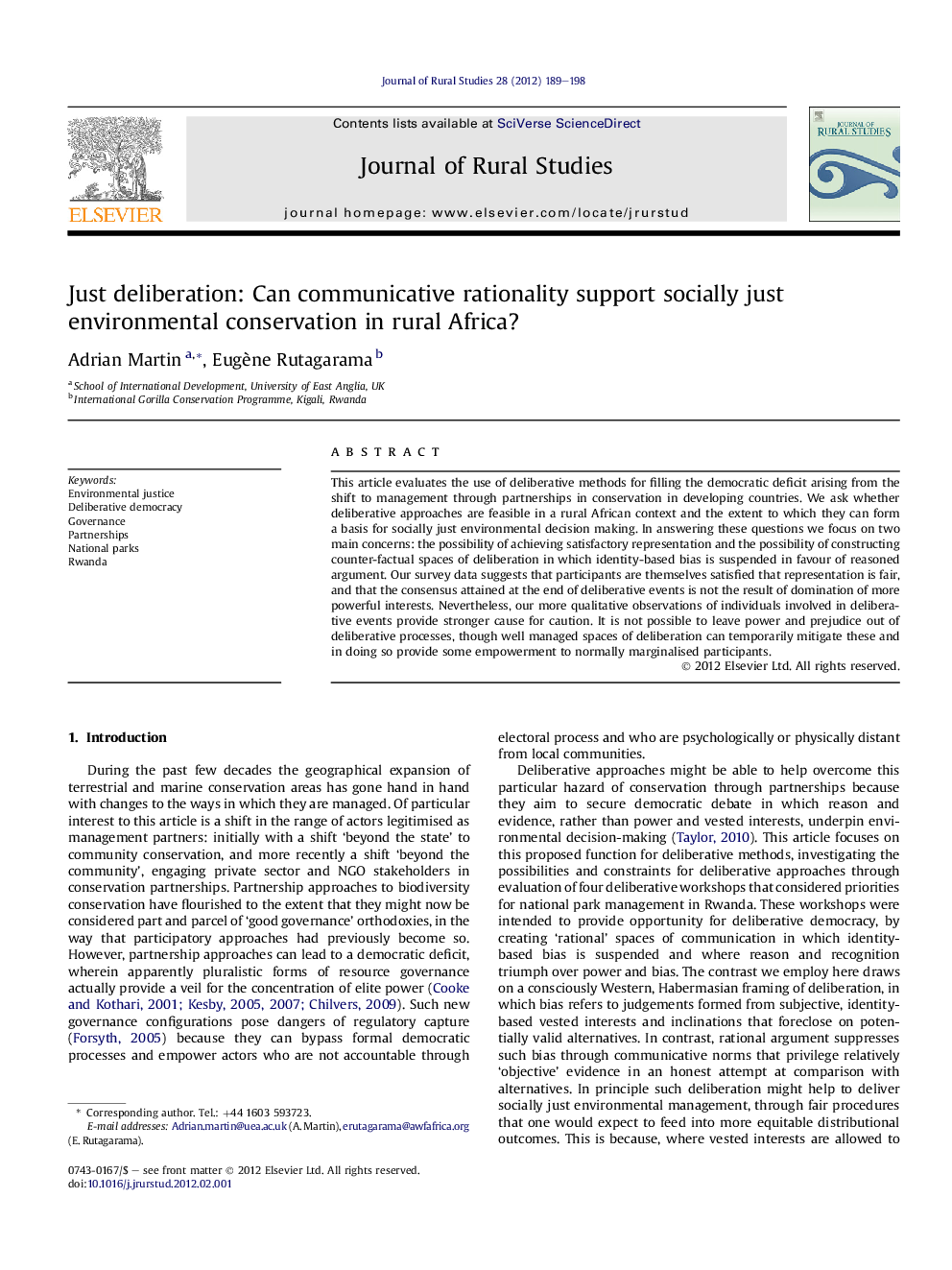| Article ID | Journal | Published Year | Pages | File Type |
|---|---|---|---|---|
| 92668 | Journal of Rural Studies | 2012 | 10 Pages |
This article evaluates the use of deliberative methods for filling the democratic deficit arising from the shift to management through partnerships in conservation in developing countries. We ask whether deliberative approaches are feasible in a rural African context and the extent to which they can form a basis for socially just environmental decision making. In answering these questions we focus on two main concerns: the possibility of achieving satisfactory representation and the possibility of constructing counter-factual spaces of deliberation in which identity-based bias is suspended in favour of reasoned argument. Our survey data suggests that participants are themselves satisfied that representation is fair, and that the consensus attained at the end of deliberative events is not the result of domination of more powerful interests. Nevertheless, our more qualitative observations of individuals involved in deliberative events provide stronger cause for caution. It is not possible to leave power and prejudice out of deliberative processes, though well managed spaces of deliberation can temporarily mitigate these and in doing so provide some empowerment to normally marginalised participants.
► Deliberative approaches can help to address the democratic deficit arising from environmental management through partnerships. ► Constructing counterfactual spaces of communicative rationality is particularly problematic in rural Africa. ► The contribution to procedural and recognitional justice may be partly limited by the longevity of the counterfactual space.
